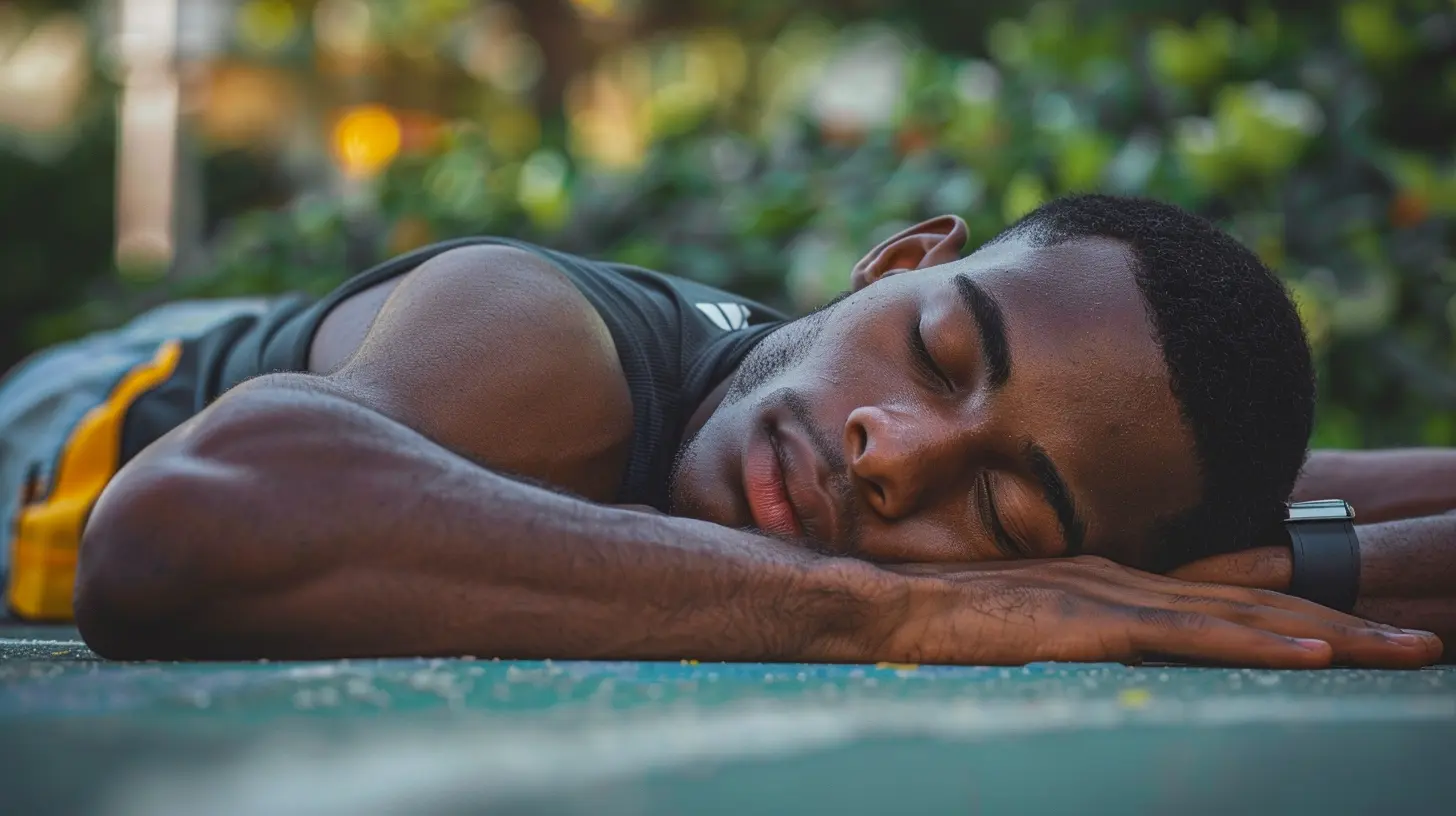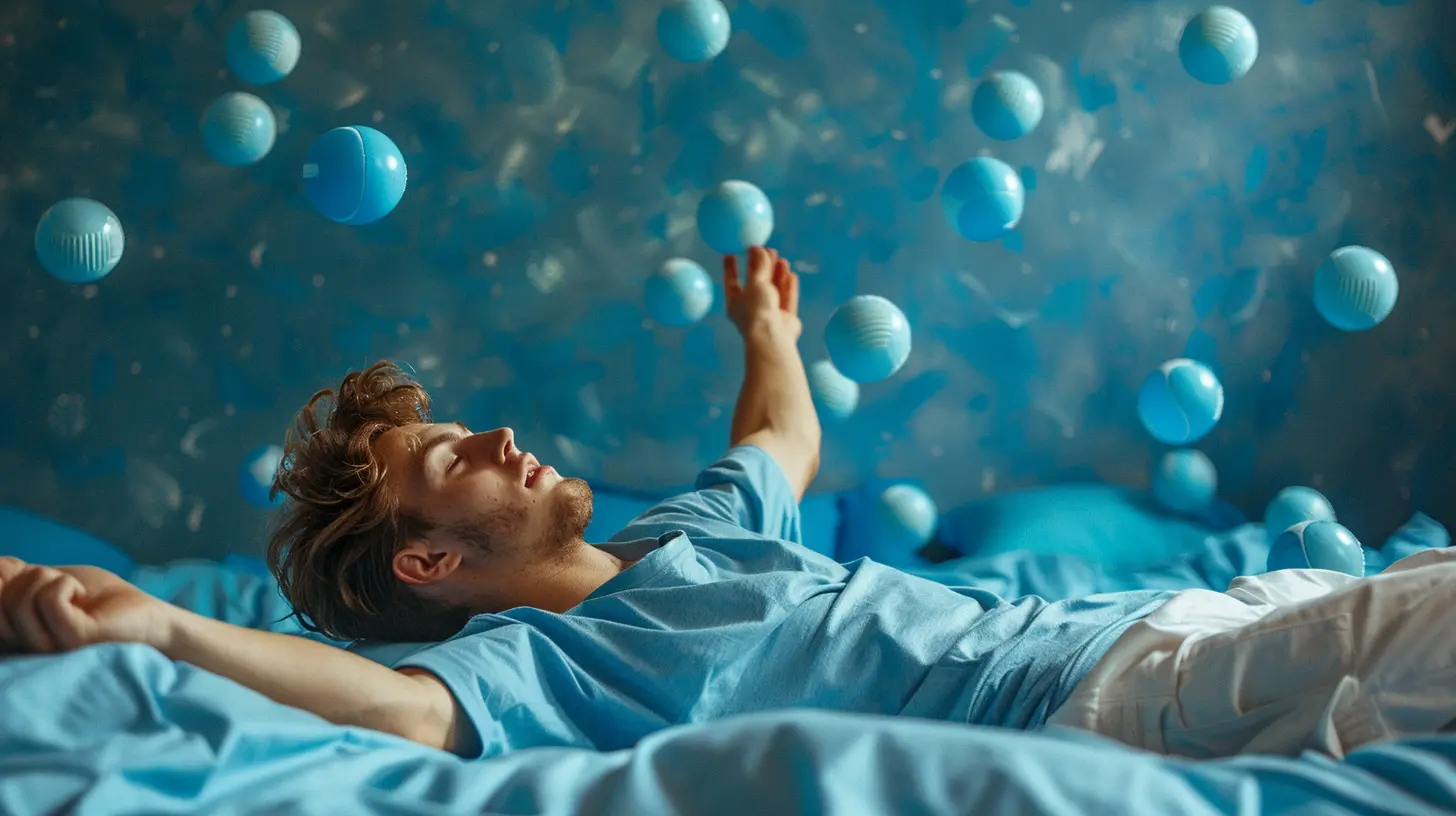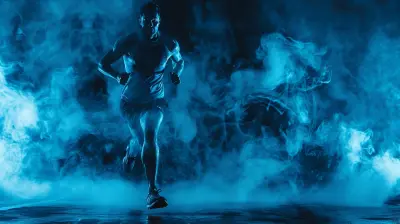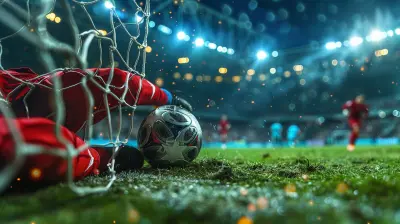The Impact of Sleep on Athletic Performance and Mental Focus
7 November 2025
Introduction
Ever wondered why elite athletes prioritize sleep just as much as training and diet? Sleep isn't just for rest—it's a game-changer when it comes to performance, recovery, and mental sharpness. Whether you're a professional athlete, a weekend warrior, or just someone trying to improve fitness, sleep plays an essential role in how well your body moves and your mind operates.
In this article, we'll break down exactly how sleep impacts athletic performance and mental focus, why you should make it a priority, and how to optimize your rest for peak fitness. So, if you're burning the midnight oil while trying to crush workouts, it's time to rethink your strategy! 
Why Sleep is an Athlete's Secret Advantage
You might hit the gym consistently, eat well, and push your limits during training—but if you're skimping on sleep, you're leaving gains on the table. Sleep is when the body repairs, restores, and fine-tunes itself for peak performance.During deep sleep, key processes occur, such as:
- Muscle repair and growth – Sleep triggers the release of growth hormones, helping muscles recover and get stronger after intense workouts.
- Energy restoration – Glycogen, the body's main energy source, is replenished overnight, ensuring you're ready for the next training session.
- Cognitive sharpening – Sleep enhances memory, reaction time, and decision-making, which are all critical for athletic performance.
Simply put, skipping sleep is like trying to drive a racecar on an empty tank. You're not doing yourself any favors! 
How Lack of Sleep Hurts Your Athletic Performance
Think you can function just fine on 4-5 hours of sleep? Think again. Sleep deprivation doesn't just leave you feeling groggy—it directly impacts key aspects of athletic performance:1. Slower Reaction Time
In nearly every sport, reaction time is crucial. Whether you're dodging an opponent, reacting to a fastball, or making a split-second decision, poor sleep increases your response time, making you sluggish and prone to mistakes.2. Reduced Strength and Endurance
Studies show that sleep-deprived athletes experience a drop in strength, power, and stamina. Your muscles simply don't perform at their best when they haven't been properly restored overnight. So, if you're struggling to hit personal records at the gym, inadequate sleep might be the culprit.3. Increased Risk of Injury
When you're tired, your coordination and focus take a hit—leading to poor form, slower reflexes, and a higher likelihood of injuries. Research even suggests that athletes who sleep fewer than six hours per night are more prone to injuries than those who get optimal rest.4. Weaker Immune System
A good night's sleep keeps your immune system strong. When you're running on empty, your body can't fight off infections as effectively, making you more susceptible to colds, fatigue, and inflammation—all of which can derail your training.5. Higher Stress and Anxiety Levels
Ever noticed how things seem worse when you're exhausted? Poor sleep spikes cortisol (the stress hormone), leading to increased anxiety and irritability. This can mess with your confidence, motivation, and overall mental toughness, which are all key to athletic success.
Sleep’s Role in Mental Focus and Decision-Making
Athletics isn't just about physical ability—it requires razor-sharp focus, quick decision-making, and mental resilience. And guess what? Sleep plays a massive role in all of these.Sharper Reaction Speeds
A well-rested brain processes information faster. Whether you're dribbling in basketball, swinging in tennis, or strategizing in football, split-second decisions can make or break your performance.Better Concentration and Learning
Learning new techniques? Perfecting your form? Sleep strengthens neural connections, helping you retain and refine skills faster. Think of your brain like a hard drive—without proper sleep, files get corrupted, and retrieving information gets harder.Improved Problem-Solving and Strategy Execution
Many sports require strategy—whether it's reading an opponent’s moves, deciding when to push harder, or pacing yourself in a race. Sleep-deprived athletes struggle with logical thinking and game-time decisions.Emotional Stability and Motivation
Sleep deprivation leads to mood swings, lack of motivation, and increased frustration. Meanwhile, well-rested athletes tend to have better mental endurance and resilience, bouncing back from setbacks more effectively.
How Much Sleep Do Athletes Need?
The average adult needs 7-9 hours of sleep, but athletes may need even more—sometimes 8-10 hours—to fully recover and maintain peak performance. Elite athletes like LeBron James and Roger Federer reportedly sleep 10-12 hours per night.If you're training hard, consider tracking your sleep patterns and adjusting based on how your body feels. Quality matters just as much as quantity!
Tips to Improve Sleep for Better Athletic Performance
Struggling to get quality sleep? Here are some game-changing tips to maximize your rest and recovery:1. Stick to a Sleep Schedule
Going to bed and waking up at the same time—even on weekends—helps regulate your internal clock for consistent, high-quality sleep.2. Create a Sleep-Friendly Environment
Make your bedroom a sleep sanctuary:- Keep it cool (around 60-67°F or 15-19°C)
- Block out light with blackout curtains
- Reduce noise with white noise machines or earplugs
- Invest in a comfortable mattress and pillows
3. Avoid Screens Before Bed
Blue light from phones, tablets, and TVs messes with your melatonin levels, making it harder to fall asleep. Try switching to a book or meditation instead.4. Watch Your Caffeine and Alcohol Intake
Caffeine stays in your system for 6+ hours, so avoid pre-workout drinks and coffee late in the day. Alcohol may make you sleepy initially, but it disrupts deep sleep cycles.5. Practice Relaxation Techniques
Struggling to unwind? Try stretching, deep breathing, meditation, or progressive muscle relaxation before bed. Even a warm shower can help signal your body that it’s time to wind down.6. Limit Late-Night Workouts
While exercise promotes better sleep, working out too close to bedtime can actually make it harder to fall asleep due to elevated heart rate and adrenaline levels.7. Take Power Naps Wisely
If you're sleep-deprived, a 20-30-minute nap can give your brain a quick refresh without interfering with nighttime sleep. Just be mindful of napping too late in the day.Conclusion
Sleep isn't just a luxury—it's a necessity for peak athletic performance and mental sharpness. If you're training hard but neglecting rest, you're missing out on the full benefits of your efforts. From muscle recovery to faster reaction times and better focus, high-quality sleep is the ultimate performance enhancer.So, if you're serious about reaching your fitness goals, start treating sleep like the MVP it truly is. Your body and mind will thank you!
all images in this post were generated using AI tools
Category:
Sports PsychologyAuthor:

Preston Wilkins
Discussion
rate this article
1 comments
Knox McMeekin
In the pursuit of peak performance, never underestimate the power of sleep. It’s not just rest—it’s recovery, resilience, and razor-sharp focus. Prioritizing quality sleep can elevate athletes to new heights, transforming fatigue into fierce determination. Embrace the night, and watch your game soar! Sleep well, perform better!
November 14, 2025 at 12:10 PM

Preston Wilkins
Absolutely! Sleep is crucial for recovery and optimal performance. Prioritizing quality rest is key to unlocking an athlete's full potential. Thank you for highlighting its importance!


